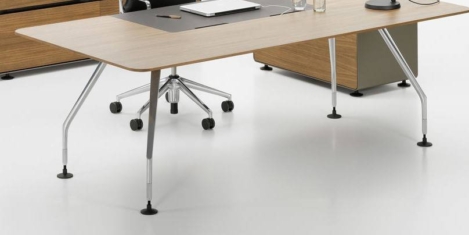To provide the best experiences, we use technologies like cookies to store and/or access device information. Consenting to these technologies will allow us to process data such as browsing behaviour or unique IDs on this site. Not consenting or withdrawing consent, may adversely affect certain features and functions.
The technical storage or access is strictly necessary for the legitimate purpose of enabling the use of a specific service explicitly requested by the subscriber or user, or for the sole purpose of carrying out the transmission of a communication over an electronic communications network.
The technical storage or access is necessary for the legitimate purpose of storing preferences that are not requested by the subscriber or user.
The technical storage or access that is used exclusively for statistical purposes.
The technical storage or access that is used exclusively for anonymous statistical purposes. Without a subpoena, voluntary compliance on the part of your Internet Service Provider, or additional records from a third party, information stored or retrieved for this purpose alone cannot usually be used to identify you.
The technical storage or access is required to create user profiles to send advertising, or to track the user on a website or across several websites for similar marketing purposes.
 Over recent years, we have witnessed significant changes when it comes to the workplace. Women are continuing to push through the glass ceiling, offices are starting to look more likes homes and businesses are opting for a more flexible and sociable working environment. This rise in coworking and other forms of flexible office space is just one of the latest trends to emerge from the corporate world, and according to a report by office brokers Office Freedom, London is at the forefront of this growing market. (more…)
Over recent years, we have witnessed significant changes when it comes to the workplace. Women are continuing to push through the glass ceiling, offices are starting to look more likes homes and businesses are opting for a more flexible and sociable working environment. This rise in coworking and other forms of flexible office space is just one of the latest trends to emerge from the corporate world, and according to a report by office brokers Office Freedom, London is at the forefront of this growing market. (more…)






















 Recent ONS figures showing a rising employment rate could be inflated by the growth of zero-hour contracts within the gig economy, as the number of UK workers on zero hour contracts having more than tripled since 2012. This is propping up overall employment levels by accounting for almost a quarter of overall employment growth, new data by Adzuna has suggested. With the employment rate currently at a record high of 75.7 percent according to the ONS, Adzuna’s data compares recent growth in the number of people in work overall to the increasing number of zero hour contracts, to ascertain how much these contracts have contributed to the growth.
Recent ONS figures showing a rising employment rate could be inflated by the growth of zero-hour contracts within the gig economy, as the number of UK workers on zero hour contracts having more than tripled since 2012. This is propping up overall employment levels by accounting for almost a quarter of overall employment growth, new data by Adzuna has suggested. With the employment rate currently at a record high of 75.7 percent according to the ONS, Adzuna’s data compares recent growth in the number of people in work overall to the increasing number of zero hour contracts, to ascertain how much these contracts have contributed to the growth.







April 23, 2019
The flexible solution to workplace loneliness
by Guzman de Yarza Blache • Comment, Flexible working, Wellbeing, Workplace design
(more…)